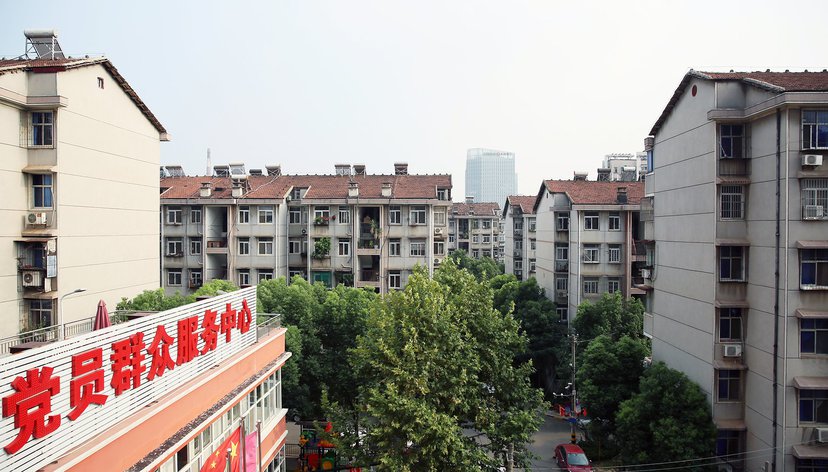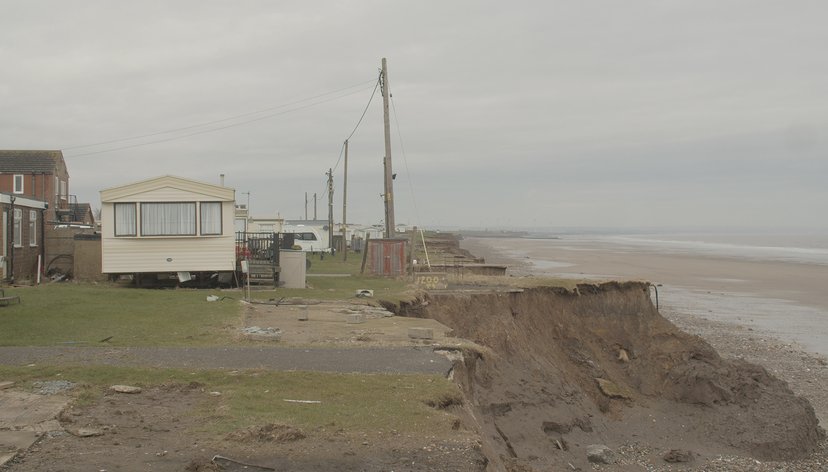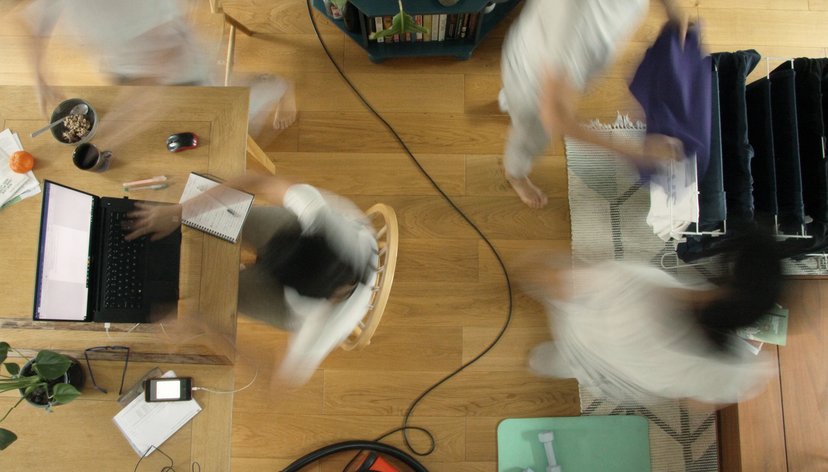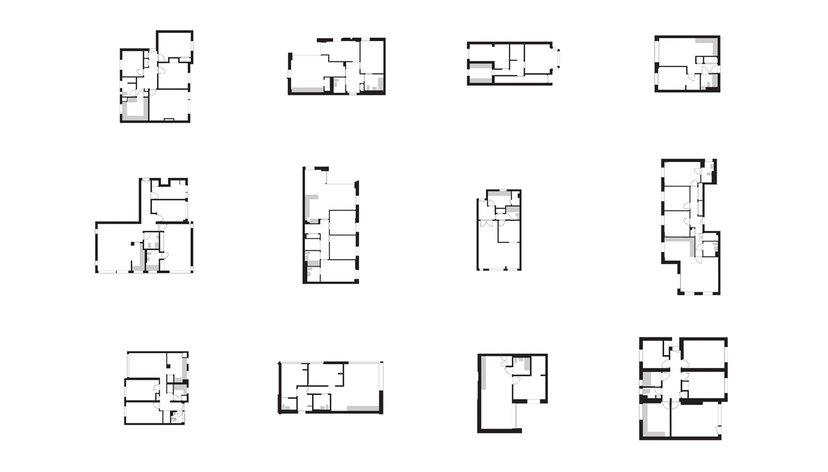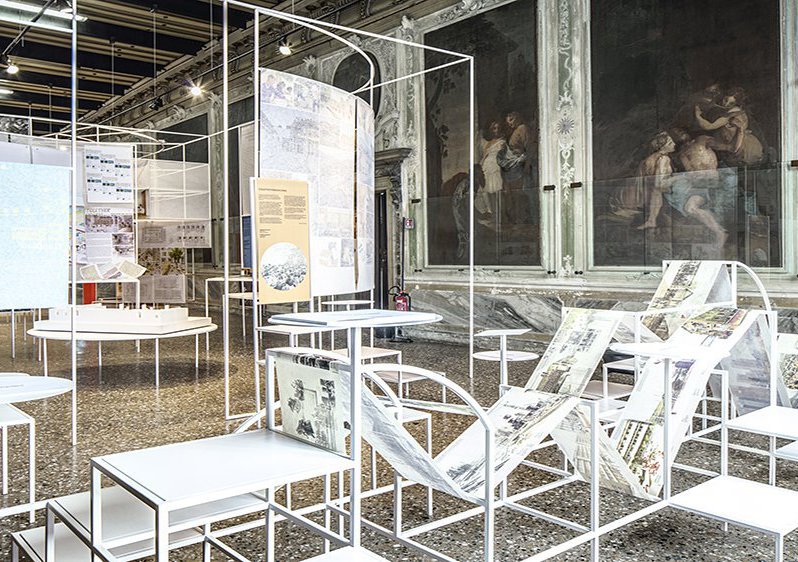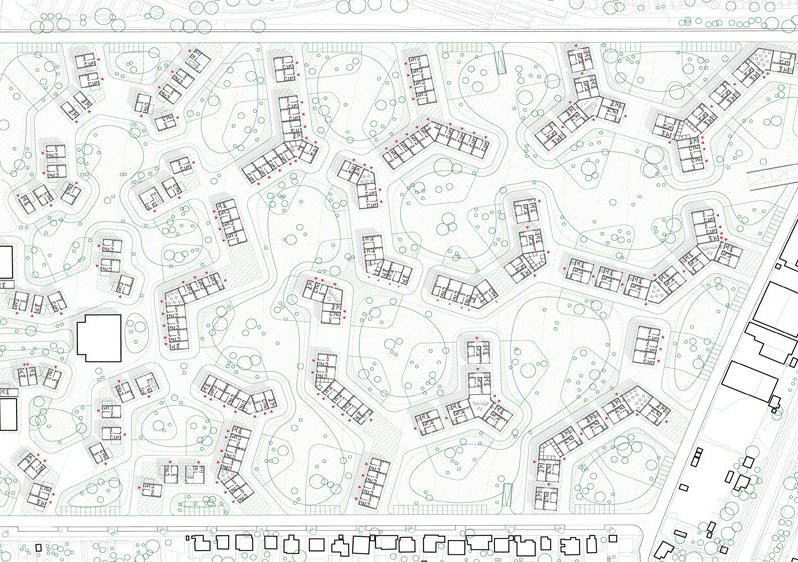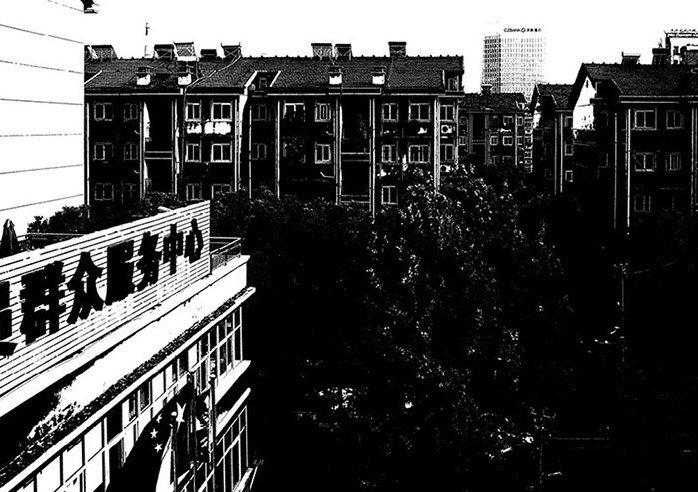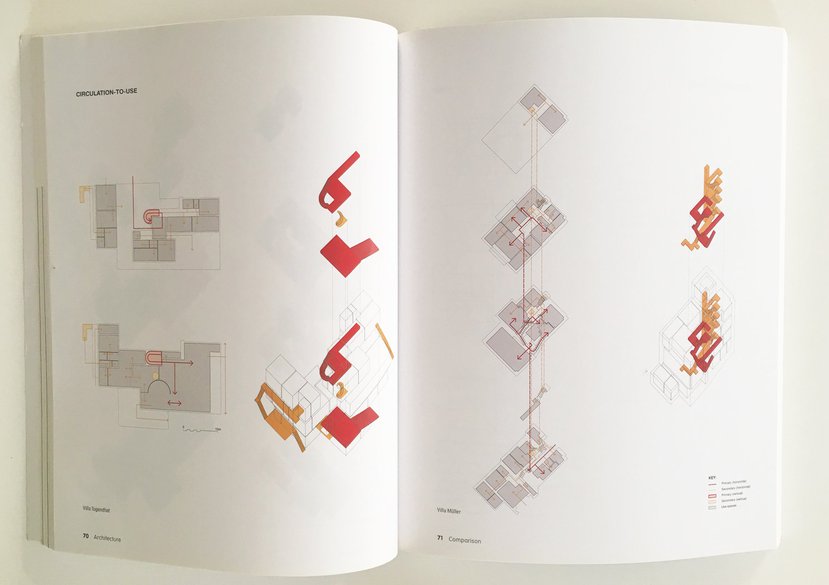
Professor Sam Jacoby
- Professor of Architectural and Urban Design Research
- Research Lead
Sam is an architect, design researcher and historian with a diverse research portfolio and interdisciplinary practice.
Sam is Professor of Architectural and Urban Design Research, Research Lead of the School of Architecture, and Director of the Laboratory for Design and Machine Learning at the RCA. He has extensive research leadership experience and is responsible for School-wide research strategy and management.
An innovator in research-led teaching, Sam has created unique research programmes providing graduates with the knowledge and design research skills needed to tackle emerging challenges in both practice and academia. He taught in 12 academic programmes and 6 architectural schools in the UK and Germany, directing PhD, MPhil, and MRes research-degree programmes, and leading postgraduate design studios and history and theory seminars. Sam was the founding Director of the MPhil in Architecture and Urban Design: Projective Cities programme at the Architectural Association School of Architecture (2009–19). He was also Professor of Architecture, Design, and Building Typology at the Staatliche Akademie der Bildenden Künste Stuttgart (2016).
Sam earned a Dr.-Ing. from the Technische Universität Berlin and an AA Diploma from the Architectural Association School of Architecture.
Research projects
Gallery
More information
Research interests
As a design researcher, I am committed to advancing the socio-spatial impact of research and practice. My research uses mixed methods that are informed by my background in architecture, architectural history, and urban design as well as interdisciplinary approaches and cross-disciplinary collaborations.
Through my research, I study shifts in epistemic frameworks and methodological innovations. I am specifically motivated by an interest in spatialised governmentality and the socio-spatial and socio-technical histories, realities, and lived experiences as well as the governance, practices, processes, norms, and expectations that shape collective forms and actions.
In my recent work, I have examined the histories and policies that shape housing design, including the use of standardisation and building performance requirements. I have also analysed the significance of typological and morphological analysis, as well as data-driven and machine learning-based methods, in both design practice and theory. I further investigated the role of collective forms and spaces in community-led development and socialised governance and explored the importance of wellbeing in understanding design outcomes.
My current research focuses on data-driven and evidence-based design as well as innovations in design research, including design-led research to generate new data and evidence that can inform design decisions and policies, and research into intergenerational problems such as wellbeing, climate crisis, and social justice in relation to the social values or benefits created by the built environment.
Research Funding
External research funding
Co-Supervisor; Designing managed retreat: Coastal communities in the green transition, Arts and Humanities Research Council (Design Exchange Partnership), 2023–2024
Principal Investigator; Housing Standardisation: The architecture of regulations and design standards, Arts and Humanities Research Council, 2022–2024
Primary Supervisor; Defining architectural typologies through structural topologies and machine learning, London Arts & Humanities Partnership (Collaborative Doctoral Award), 2019–2023
Co-Investigator; Housing standardisation: Design guidelines, regulatory frameworks, and policy, Pontificia Universidad Católica de Chile, 2019–2020
Co-Principal Investigator; Laboratory for Design and Machine Learning, Prosit Philosophiae Foundation, 2018–
Principal Investigator; Collective forms: Neighbourhood transformations, spatialised governmentality and new communities in China, British Academy (The Humanities and Social Sciences Tackling the UK’s International Challenges 2017), 2018–2019
Principal Investigator; Miaosan community study, Hubei Institute of Fine Arts), Environmental Art Research Centre, 2018
Primary Supervisor; Neighbourhood transformations and new communities, Stavros Niarchos Foundation: STEAM Scholarships & Research Fund, 2017–2023
Co-Principal Investigator; Collective forms in China, Huazhong University of Science & Technology, 2016–2017
Practice
Sam is a chartered architect, urban designer, and spatial design consultant with expertise working on a wide range of scales and building typologies as well as with diverse clients and institutions.
He trained as a cabinet-maker in Germany before becoming an architect.
Current and recent projects
Designing Managed Retreat: Coastal Communities in the Green Transition, 2023–2024
This project will develop a new toolkit to help local communities in England deal with net zero design challenges arising from a managed retreat from coastal areas affected by long-term climate change impacts and sea-level rise.
Supervisor (Co-Supervisor Adrian Lahoud, Research Associate Benjamin Mehigan, partner The Architecture Foundation), Arts and Humanities Research Council (Design Exchange Partnership)
Housing Standardisation: The Architecture of Regulations and Design Standards, 2022–2024
The project will analyse the determinants of housing design standardisation and the architecture produced by regulations and standards. It combines architectural design research and historical analysis to examine housing design. The research is novel in the way it considers the impact of design governance, such as housing regulations and standards, on standardised housing outcomes and architectural discourse. The study explores how spatial, social, and technical reasoning affects the design of housing as well as definitions of design value and quality. It considers both empirical evidence and social norms and expectations. The project compares historical design governance and current housing projects in England, Chile, the Netherlands, Spain, Switzerland, and China.
PI (Co-I Alvaro Arancibia, Pontificia Universidad Católica de Chile), Arts and Humanities Research Council
[Additional funding: Research Development Fund (RCA), Strategic Priorities Fund (RCA), Seed Fund (Pontificia Universidad Católica de Chile, 2019–20.]
Second Sea, 2022
Sea levels are rising as a result of human-caused global warming. Some nations are more responsible for this than others. Second Sea is an interactive calculator for financial damages owed to coastal cities by different nations to stimulate debate about reparations.
Second Sea is the sea made by climate change.
Co-I (PI Adrian Lahoud, RCA), School of Architecture Research Fund (RCA)
Large-scale Data Collection, Inference and Integration for Housing Design Studies, 2020–2022
The project develops a novel methodology to automate the large-scale collection and inference of data combining visual and statistical sources on housing in London. The main expected outcome is a database that can inform housing design and development strategy decisions. To demonstrate the use of this database, the project proposes a comparative analysis of the relationships between development control, housing morphologies and urban form, and their evolution over time.
PI (Co-I Ali Asadipour, RCA; Lead Researcher Robin Roussel), Research Investment Fund (RCA) and Prosit Philosophiae Foundation
Spatial Design and Wellbeing, 2020
How can we measure and evaluate spatial quality and design through objective indicators and subjective experiences of wellbeing at community, family, and individual levels? In response to this question, the project will develop culturally sensitive and contextual wellbeing measurements in relation to the build environment in China and test these in two pilot sites in Shanghai.
PI (Co-I Prof Yuan Hao, Shanghai University), Global Challenges Research Fund (RCA)
Defining Architectural Typologies Through Structural Topologies and Machine Learning, 2019–23
This project examines the relationship between topological structural models and architectural typologies and their potential impact on new construction and design processes. It explores whether integrating structural and architectural design processes can create new building typologies that address social and economic needs. The study aims to develop machine learning-based design models that adapt to environmental, social, and economic changes, reduce energy usage, and provide better environmental comfort and space efficiency. The project uses an interdisciplinary methodology combining statistical and computational analysis from engineering and the sciences with typological design and research methods from an architectural and arts context.
Primary Supervisor, London Arts & Humanities Partnership (Collaborative Doctoral Award) | PhD candidate: Yakim Milev; partner: AKT II
The Effects of Migration on Settlements and Urbanisation in Ethiopia and Uganda, 2019–2020
In collaboration with the University of Addis Ababa, the project undertook fieldwork in Ethiopia in order to create a preliminary classification of settlements and urban area typologies formed by urban migration including internal displacement. The project further conducted a workshop in Addis Ababa with representatives from IOM, UNHCR, local government agencies responsible for migration planning, and academics specialised in migration studies and policies. The workshop included discussions on new approaches to conceptualising, analysin, and researching spatial design and planning issues arising from migration.
PI, Global Challenges Research Fund (RCA)
Construction Automation and Building Processes, 2019
This project analyses the impact of construction automation on building processes. It uses a desktop study, case study analysis, literature review, interviews, site visits, and a workshop with experts to examine new design and construction methods for the architectural, engineering, and construction industry. The aim is to develop practical mid- and long-term research questions that will help advance automated construction in the industry.
Co-I (PI Manja van de Dorp), RKE Research Development Fund
Laboratory for Design and Machine Learning, 2018–23
The Laboratory for Design and Machine Learning is formed of a multi-disciplinary team. It conducts experimental and fundamental research into new methodologies and knowledge needed for emerging design processes at the intersection of machine learning, data processing and visualisation. It also investigates legal and developmental frameworks. Its research is dedicated to testing new interdisciplinary forms of designing and evaluation, hereby studying the impact of machine learning and governmental policies on spatial design.
Research Projects
The London Housing Data Visualisation Platform (2021–)
The Home, the Household, and Covid-19 (2021–22)
Hong Kong Housing: Policy and Design since the 1950s (2020–21)
London Housing: Policy, Regulation, Typology, and Dimensional Data (2018–20)
Co-PI/Director (Co-PI Adrian Lahoud, RCA), Prosit Philosophiae Foundation
This research examines how social projects, spaces, and realities shape urban design and planning in China, focusing on governmentality, collective spatial development models, and socio-spatial changes in urban and rural areas. The study compares community developments in China and analyses how national collectivisation in the 1950s created rural people's commune and urban work-unit systems, which still affect public infrastructure and services. Despite policy reforms since 1978, these systems also created resilient governance and community-building models. The study proposes an interdisciplinary approach that offers alternatives to Western-centric theory and practice and has global relevance, including in the UK and its community-led developments.
PI (Co-Is Tan Gangyi, He Xuefeng, Tang Yan), British Academy (The Humanities and Social Sciences Tackling the UK’s International Challenges 2017)
[Additional funding: Research Cost Fund (RCA), 2019; Huazhong University of Science & Technology, 2016–17]
Classification and Evaluation of Spatial Design in Learning Environments,
The project is to develop a new spatial classification of higher education learning environments that relate design parameters to pedagogies, and to propose methods to qualitatively evaluate the impact of design on academic learning, teaching and research. The project will bring together a group of advisors from industry, government, and institutions with experience in the design, assessment, commissioning or running of higher education buildings. Through a series of short workshops, feedback from other disciplines and outside experts is sought on the formulation of classification and assessment criteria of learning environments.
PI, RKE Research Development Fund, 2016
Publications, exhibitions, other outcomes
Selected publications
Books
Jacoby, S. & Cheng, J. (Eds.). (2020). The socio-spatial design of community and governance: Interdisciplinary urban design in China. Springer Nature.
Jacoby, S. (2016). Drawing architecture and the urban. Chichester: John Wiley & Sons.
Lee, C. & Jacoby, S. (Eds.). (2007). Typological formations: Renewable building types and the city. London: AA Publications.
Edited journals
Jacoby, S. & Özer, S. (forthcoming 2024). Housing norms and standards: The design of everyday life [Special issue]. Urban Planning, 9(2).
Jacoby, S., Cheng, J. & Tan, G. (Eds.). (2018). Collective forms in China: A contemporary review [Special issue]. New Architecture/Xin Jianzhu, 5.
Jacoby, S. (Ed.). (2015). Type versus typology [Special issue]. The Journal of Architecture, 20(6).
Jacoby, S. (Ed.). (2015). New design research in architecture and urban design [Special issue]. Urban Flux/Chengshi Kongjian Shiji, 45(5).
Lee, C. & Jacoby, S. (Eds.). (2011). Typological urbanism: Projective cities [Special issue]. Architectural Design, 81(1).
Book chapters
Cepl, J., Jacoby, S. & Massaro, V. (2023). Oswald Mathias Ungers and the ‘city as a work of art’: The Neue Stadt in Cologne, 1961–1964. In Mosayebi, E. & Kraus, M. (Eds.), The Renewal of Dwelling: European Housing Construction 1945–1975 (pp. 158–167). Triest Verlag.
Jacoby, S. (2020). Urban design and spatialised governmentality: Collective forms in China. In Jacoby, S. & Cheng, J. (Eds.), The socio-spatial design of community and governance: Interdisciplinary urban design in China (pp. 3–15). Springer.
Jacoby, S. & Cheng, J. (2020). Collective forms in China: An architectural analysis of the people’s commune, danwei, and xiaoqu. In Jacoby, S. & Cheng, J. (Eds.), The socio-spatial design of community and governance: Interdisciplinary urban design in China (pp. 17–69). Springer.
Jacoby, S. (2015). Architectural urbanism: Proposals for the Arab World. In Saliba, R. (Ed.), Reconceptualising boundaries: Urban design in the Arab World (pp. 97–113). Ashgate.
Peer-reviewed articles and papers
Starzyńska-Grześ, M., Roussel, R., Jacoby, S. & Asadipour, A. (2023). Computer vision-based analysis of buildings and built environments: A systematic review of current approaches. ACM Computing Surveys, ahead-of-print, 1–24.
Aydemir, A. Z. & Jacoby, S. (2023). Architectural design research in small practices. Archnet-IJAR: International Journal of Architectural Research, ahead-of-print, 1–15.
Jacoby, S. & Alonso, L. (2022). Home use and experience during COVID-19 in London: Problems of housing quality and design. Sustainability, 14(9), 5355:1–5355:21.
Alonso, L., & Jacoby, S. (2022). The impact of housing design and quality on wellbeing: Lived experiences of the home during COVID-19 in London. Cities & Health, ahead-of-print, 1–13.
Özer, S. & Jacoby, S. (2022). Dwelling size and usability in London: A study of floor plan data using machine learning. Building Research & Information, 50(6), 694–708.
Jacoby, S., Arancibia, A. & Alonso, L. (2022). Space standards and housing design: Typological experimentation in England and Chile. The Journal of Architecture, 27(1), 94–126.
Özer, S. & Jacoby, S. (2022). The design of subsidized housing: Towards an interdisciplinary and cross-national research agenda. Housing Studies, ahead-of-print, 1–26.
Aydemir, A. Z. & Jacoby, S. (2022). Architectural design research: Drivers of practice. The Design Journal, 25(4), 657–674.
Avilla-Royo, R, Jacoby, S. & Bilbao, I. (2021). The building as a home: Cooperative housing in Barcelona. Buildings, 11(4), 137:1–137:20.
Aydemir, A. Z. & Jacoby, S. (2020). Design research and a shift in architectural education and practice. In Cabrera et al (Eds.), The Architect and the City: Proceedings of the EAAE-ARCC 2020 International Conference, Vol 2 (pp. 1426–36). Editorial Universitat Politècnica de València.
Jacoby, S. (2019). Collective forms and collective spaces: A discussion of urban design thinking and practice, based on research in Chinese cities. China City Planning Review, 28(4), 10–17.
Jacoby, S. & Cheng, J. (2018). Collective forms in China: People’s commune and danwei. New Architecture/Xin Jianzhu, 5, 5–11.
Jacoby, S. (2018). Oswald Mathias Ungers: Dialectical principles of design. The Journal of Architecture, 23(7-8), 1230–1258.
Cheng, J., & Jacoby, S. (2017). Design research and architectural urbanism: Cross-disciplinary knowledge production and practice. New Architecture/Xin Jianzhu, 5, 141–143.
Jacoby, S. (2015). Type versus typology. The Journal of Architecture, 20(6), 931–937.
Jacoby, S. (2015). Typal and typological reasoning: A diagrammatic practice of architecture. The Journal of Architecture, 20(6), 938–961.
Exhibitions
(2019) Collective Forms in China: Wuhan (Cities Exhibition, with Jingru Cheng) and Collective Subjectivities and Housing (Global Studios Exhibition, with Platon Issaias). 2nd Seoul Biennale of Architecture and Urbanism.
(2018) People’s Commune and Danwei (with Jingru Cheng). Venice Biennale, 16th International Architecture Exhibition: Across Chinese Cities – The Community.
(2016) Collective Forms in China (with Jingru Cheng). Beijing Design Week.
(2016) Drawing Architecture and the Urban. 1st Tehran Architecture Biennial: Architecture Today.
(2012) Ungers’s Villa [Roosevelt Island]. Storefront for Art and Architecture, New York City: Past Futures, Present, Futures
Symposia (Organised)
(2019) Representations/Investigations: Media in Architecture, the Territory and the Urban (co-organiser with Platon Issaias). Architectural Association School of Architecture (London).
(2018) Spatialised Governmentality: China and the Global Context. Royal College of Art (London).
(2018) The Chinese Neighbourhood Unit. Tsinghua University (Beijing, China).
(2018) Collective Forms: New Communities. Huazhong University of Science and Technology (Wuhan, China).
(2018) Future Homes for London: Alternate Models (co-organised with Tarsha Finney and StART Haringey). Royal College of Art (London).
(2017) Architectural Urbanism (co-organised with Jingru Cheng). Huaxin Conference Centre (Shanghai, China).
(2017) Socio-spatial Design and the Transformation of Urban-rural China (co-organised with Jingru Cheng). Shanghai Jia Tong University (China).
(2016) Contemporary Urban Design Education. Architectural Association School of Architecture (London).
(2014) Type versus Typology. Architectural Association School of Architecture (London).
External collaborations
Peer Reviews
Peer review college membership
- UK Research and Innovation Talent Panel College, since 2022–
- Arts and Humanities Research Council, 2020–
Funding bodies reviewed for
- Arts and Humanities Research Council
- British Academy
- Economic and Social Research Council
- Engineering and Physical Sciences Research Council
- Swiss National Science Foundation
- Trans-Atlantic Platform
Journals and publishers reviewed for
- Architecture and Culture Journal (Architectural Humanities Research Association)
- Architectural Research Quarterly (Cambridge University Press)
- Arena Journal of Architectural Research (Architectural Research European Network Association)
- Applied Sciences (MDPI)
- Building (MDPI)
- City, Territory and Architecture (Springer)
- Digital Architecture (Frontiers)
- Environment and Planning B: Urban Analytics and City Science (Sage Publishing)
- Frontiers, Digital Architecture (Frontiers Media)
- Housing and Society (Taylor & Francis)
- Journal of Architecture (Taylor & Francis)
- Journal of Architecture & Urbanism (VGTU Press)
- Journal of Asian Architecture and Building Engineering (Taylor & Francis)
- Journal of Housing and the Built Environment (Springer)
- Routledge
- Sustainability (MDPI)
- Urban Planning (Cogitatio)
Research Collaborations and Knowledge Exchange
- Addis Ababa University, Ethiopia
- AKTII
- Archilyse
- Architecture Foundation
- Association of Offices of Architects, Chile
- Environmental Art Research Centre, Hubei Institute of Fine Arts, China
- Hongmei Sub-district, Xuhui District, Shanghai, China
- Huazhong University of Science and Technology, Wuhan, China
- London Community Land Trust
- Ministry of Housing and Urban Planning, Chile
- Pontificia Universidad Católica de Chile, Santiago de Chile
- Royal Institute of British Architects
- Shanghai Jia Tong University, China
- Shanghai University, China
- The Global School, China
- Tsinghua University, Beijing, China
- VA Art Education
- Wuhan University, China
- XCYDE
External Committee Membership
(2020–) Design Subject Area Group, London Arts & Humanities Partnership
(2017–18) Academic Board, Architectural Association School of Architecture
(2017–18) Graduate School Board, Dessau International Architecture Graduate School, Anhalt University of Applied Sciences
(2009–18) Graduate School Management Committee, Architectural Association School of Architecture
OTHER
(2019–) London Arts & Humanities Partnership, supervisor
(2019) Juror for Archiprix International (Santiago de Chile)
(2018–22) London Doctoral Design Centre, supervisor
